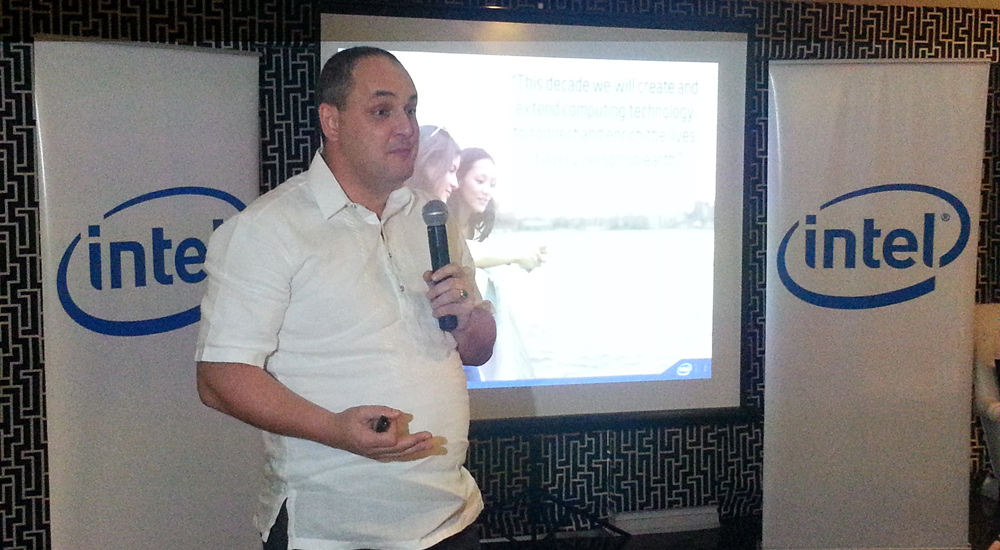Intel set to expand digital literacy program

Calum Chisholm, Country Manager of Intel Philippines, says that Intel is looking to expand its digital literacy programs going into 2014 and beyond because it can help improve people’s lives and drive the economy at the same time.
MANILA, Philippines – As computers continue to become a large part of people’s lives and society as a whole, digital literacy becomes increasingly important so that a person may utilize the technology and improve his life.
International computer technology company Intel said that being able to fully utilize computer technology allows people to uplift their lives and also drive the growth of the economy.
“Definitely education is key … you educate a person, it drives the economy,” Calum Chisholm, Country Manager of Intel Philippines said during the 2013 year-end review and 2014 predictions event last December 10.
Intel is looking toward 2014 and beyond to expand its digital literacy program both in schools and in the small and medium enterprises (SME) sector.
“In 2014, we will start to see digital literacy programs extend beyond school education. Governments need to invest to accelerate digital literacy throughout the community; a digitally literate SME sector will boost Asia’s global trade,” Philip Cronin, Intel Asia Pacific Director for Regional Sales said in a statement.
“Intel is working closely with governments to extend the digital literacy programs to adult communities,” he said.
Intel East Steps program, implemented by the National Computer Center, Commission on ICT, and the Technology Education and Skills Development Authority (TESDA), has already trained some 54,000 people, Chisholm said.
The primary target of their programs include those who had dropped out of school and the farmers and fishermen some of whom were not able to go to school.
Asked how he would be able to convince a fisherman to learn how to use computers when he might skeptical that it would not directly improve the amount of his catch, Chisholm said “but he might know the price of the fish and where to best sell it to make more money.”
The fisherman could also discover new things to do with the fish he has caught in order to develop a new innovation. “Just some simple things like that can absolutely enhance [their life],” Chisholm said.
“And that’s just the beginning, because actually a lot of the best ideas will come from the fisherman if the [software] developer then goes and talks to them,” he said.
Intel however admitted that there are challenges in improving digital literacy in the Philippines such as the geography, internet connectivity, and affordability of computers.
“Some people don’t even have electricity, connectivity, or internet devices, actually a lot, and that whole digital literacy is still a big challenge here in the Philippine,” Chisholm said.
“Its a big challenge but its something we feel passionately about … that’s our challenge to bring these accessible, affordable devices [to remote regions],” he said.